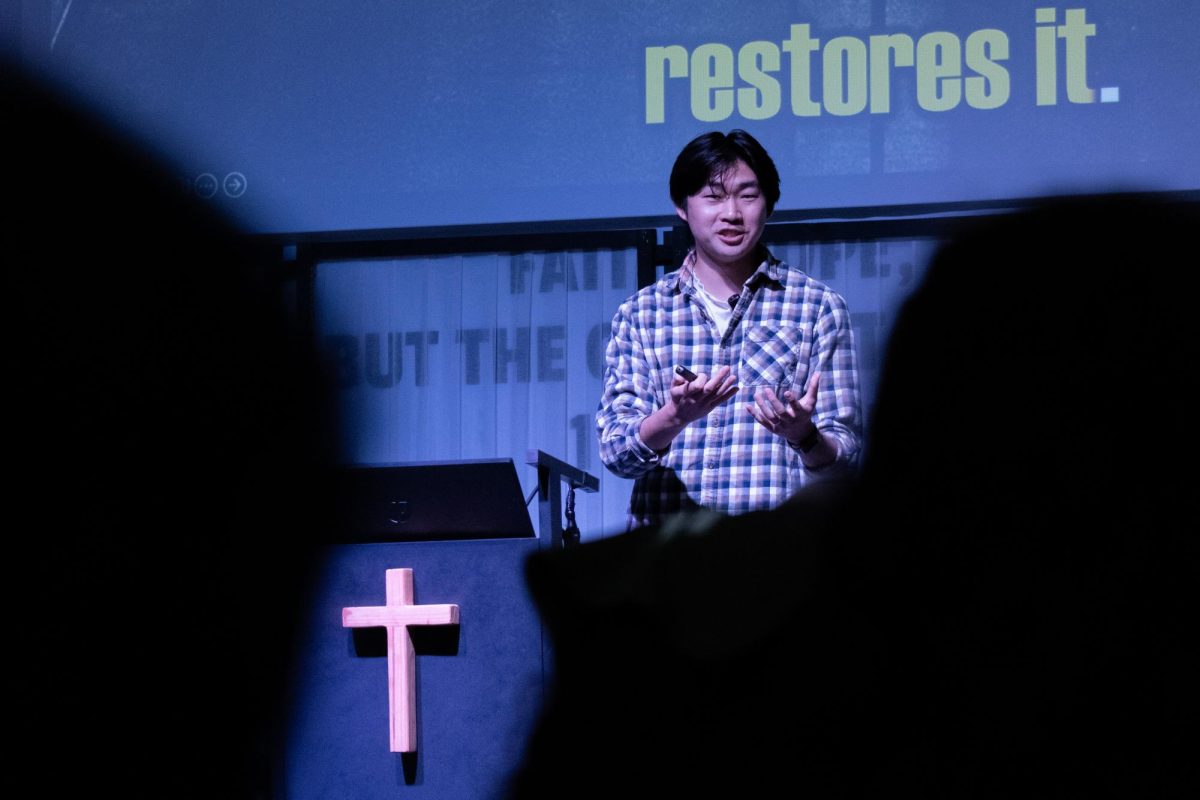
An initiative to help define the image and future goals for the success of African-American men at CSUN was discussed during a lecture by University Counseling staff psychologist Dr. Chris Holmes, Tuesday at the Jack and Florence Ferman Presentation Room in the Oviatt Library.
The event, discussing the African-American Male Academic Initiative, was supported by the University Counseling Services, EOP, and the Du Bois/Hamer Institute.
“Black males are having a difficult time graduating,” Holmes said. “What are you doing right that’s keeping you here?”
Holmes stated that his dream is to see black men come together and support each other. He also said that many programs are not successful because people don’t put energy into them.
“I want to use this group as a platform,” Holmes said. “We need to start at elementary level; black women are graduating 2 to 1 (compared to men).”
Holmes, who grew up during the 1960s, succeeded in college with help from mentors as they provided him the tools needed to graduate.
“Seven percent of African-American males have graduated from CSUN, which includes those who started at CSUN and actually graduated,” Holmes said. “These statistics are based on an entire population and we’re losing too many.”
The average number of degrees earned from African-American males is 129 compared to 491 from Latinos and 926 from Caucasians, according to Holmes.
“This is why I am concerned,” Holmes said. “The stats shouldn’t discourage you, but encourage you.”
A panel of educated African-American men provided their support and feedback to students .
“Recruitment and retaining is an issue,” said Cedric Hackett, Pan African studies professor.
Our life experiences are different, but we are all black men, Hackett added.
Kenny Oden, program mentor for EOP student support services, is the oldest sibling in his family, and said he feels responsible for making sure he instills how important an education is to his sisters.
“I got mentored on a professional level and was the only black male in my class,” Oden said. “I saw positive competition and people that looked like me were doing good things, the images around me were positive.”
Now a graduate student working on a master’s in educational leadership in policy, Oden plans on attending USC.
Sean James of CSUN EOP, grew up in Compton, California, and said he did not witness any positive influences around him.
“I’m tired of seeing black men leave colleges,” he added.
He has received his B.A. in Pan African studies, master in higher education administration and is currently working on a doctorate in education administration at USC.
“Black males are in much more need,” said Josh Thompson, a political science major. “Black males need effective study habits, mentors and need to prioritize.”
Black males need to be in social engagements with different environments, Thompson added.
“It’s great that we got dialogue started,” said Mark Gradner, staff member assistant community director of resident life. “We named the issue and black males are underrepresented in higher education.”
According to freshman Shane McGhie, major undeclared, figures that low give him a sense of motivation to continue his education.
In 2007 to 2008, 150 black males graduated with degrees from CSUN. In 2008 to 2009, 133 degrees were earned and in 2010 to 2011, 116 degrees were earned.
Holmes said African-American males can succeed by doing well academically in groups and by mentoring other Black males.





